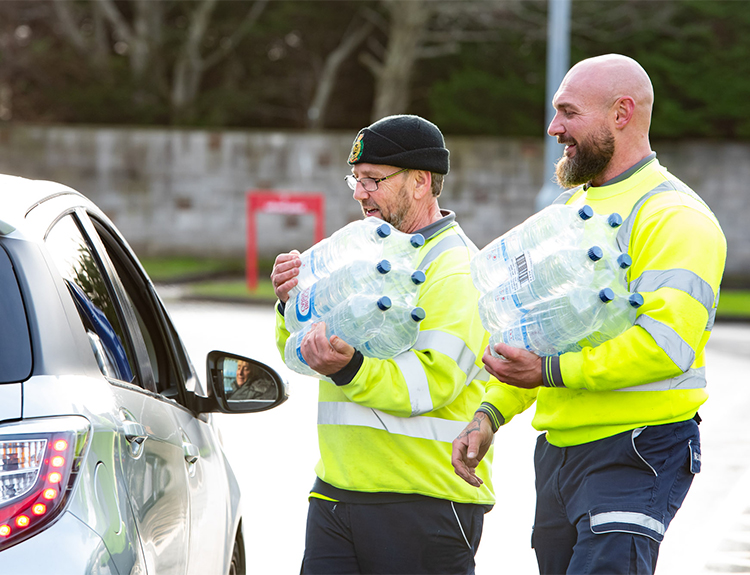

With the trend of more extreme weather events set to continue, we must plan, adapt and prepare, to strengthen our operational resilience.
In December 2022 we experienced a severe cold snap, when air temperatures fell below freezing and remained at or below freezing for ten days, reaching a low of -12°C on 15 December, before rising rapidly to 14°C by 19 December. This was a more sustained freeze and more rapid thaw than other recent freezethaw events in 2009, 2010 or 2018, and tested our preparedness, response and service recovery.
Freeze-thaw incidents present several challenges which can threaten to disrupt the service we provide to customers, such as frozen pipework on our mains and in customer properties, increased leakage following the thaw and subsequent increases in water demand.
We use Met Office data to assess the risks of weatherrelated events occurring and to act as an early warning system to trigger preparations for such an event. This approach identified, on 5 December, the risk of a weather-related event occurring and led to detailed preparatory work, including:
- encouraging customers to prepare their homes, with our ‘Prepare, Insulate, Protect, Easy’ awareness campaign;
- undertaking winter checks on targeted key assets on our system where we expected the impact to be greatest; and
- establishing a key task team, using our incident management procedure, to provide central co-ordination during events.
Key lessons learned from previous incidents meant we entered the 2022 freeze-thaw with improved capabilities as a result.
The immediate impact of the freeze-thaw was significant. A total of 22,464 customers were off supply for more than 12 hours, with the largest proportion of them in the Lancaster and Morecambe area. We very much regret the short-term service interruption some customers experienced, but because of our proactive management of the situation we were able to mitigate the impact to some extent. For example, ahead of and during the loss of supply we were able to provide clear information to local stakeholders, ensure that there were adequate bottled water supplies in the area and take steps to protect vulnerable customers through our Priority Services offering.
Within 48 hours of the thaw commencing, demand for water rose to 20 per cent above normal December levels and reached a peak of 2,200 megalitres per day, significantly higher than the peak following the 2018 ‘Beast from the East’. This was largely due to water being lost through leakage, both from elevated leakage on our own network and significant bursts on customer pipework and plumbing. Our teams and partners worked around the clock to fix damaged pipes, and we deployed our water tankers to target sensitive non-household customers such as schools, hospitals and prisons.
Management of the incident continued over the Christmas period to ensure that issues were fully resolved until the incident was formally closed on 3 January 2023. Overall, we consider that key lessons learned from previous incidents meant we entered the 2022 freeze-thaw with improved capabilities as a result.